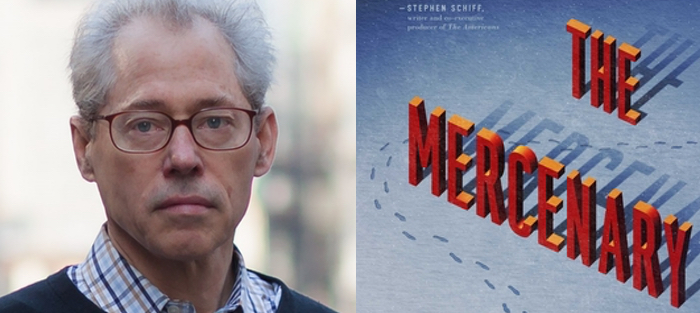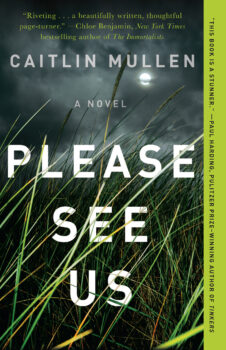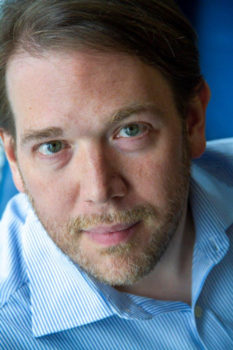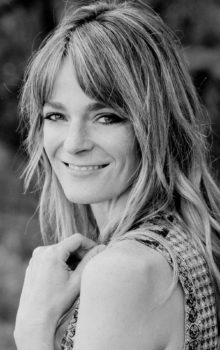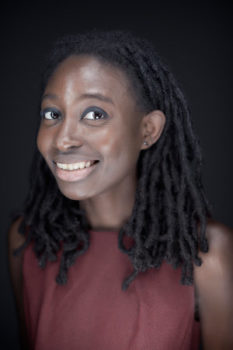At the start of my conversation with Paul Vidich, whose most recent novel is The Mercenary, I was arrogant enough to believe that I already knew most of the answers to the questions I would ask. After all, Paul and I have known each other for over ten years. We completed our MFA together as part of the Rutgers Newark inaugural class in 2009, sharing workshops with Jayne Anne Phillips, Alice Elliot Dark, and Tayari Jones, and following the program’s completion, we formed a writers group along with a handful of our fellow graduates. Since then, I’ve witnessed personally Paul’s development from a short story writer into a prolific spy novelist. I had read his first attempts to capture the true story of his uncle Frank Olson, who had worked covertly as a bio-weapons scientist for the CIA in the 1950’s and had died under suspicious circumstances. And I had watched Paul grapple with that world to discover his own talent in constructing the imagined spaces of men like his uncle, and develop these projects into what would become his debut novel, An Honorable Man. With so much familiarity over the years, one might think they know a person. To my pleasant surprise, I learned that Paul and I are two writers still getting to know each other.
It is fun to get lost in Paul’s writing. Paul’s intimacy with his subjects, along with his attention to the aesthetics of language, establish the type of authorship that allows for the fictional world to breathe. With four novels published and a fifth in progress, Paul makes it look easy. But with every new book comes a new cache of secrets to unearth, both personally and creatively. Paul’s evolution as a spy novelist is as much an honest exploration of the self as it is a fantasy of intrigue and espionage. The secret agents that populate Paul’s novels are inspired by the men and women who raised him. In his fiction, Paul reacquaints himself with the enigmatic figures of his boyhood to understand the many ways in which they created a man like him, and, in that process, his readers witness how such men leave their mark on the world. For the record, a man like Paul— his friendship, readership, and mentorship—has been a welcome influence in my life. It is my hope that our conversation reaffirms for you, as it did for me, the noble pursuit of the arts, even during these unpredictable, dirty times.
In addition to The Mercenary, Paul Vidich is the author of The Coldest Warrior (2020), which was shortlisted for the Staunch Book Prize. His first two novels, An Honorable Man (2016) and The Good Assassin (2017), were published in the US, Ireland, Great Britain, India, and Australia by Simon and Schuster. His fiction and nonfiction have appeared in The Wall Street Journal, LitHub, CrimeReads, Fugue, The Nation, and elsewhere. His short story “Falling Girl” was nominated for a 2011 Pushcart Prize.
Interview:
Dawn Ryan: So, I want to start by thanking you for asking me to have this conversation with you about your new novel, The Mercenary. I think it means two things: one that you believe I’m an actual writer, and two: that you don’t think I will humiliate you. And those two things mean the world to me, so thank you.
Paul Vidich: When I was asked to suggest a writer for this conversation, you were the first person who came to mind. I have always admired your writing, and the recent recognition of that work with a Pen Parentis fellowship is well-deserved.
I’ve discovered that the public acknowledgement of one’s work—through a fellowship or, in my case, publication of a novel—forces you to think differently about the work. One fun thing about writing is the unconscious element. I create characters and have them interact with other characters, but I’m unconscious in the sense that I’m allowing myself to go places that feel right. I don’t interrogate why I’m going in a particular direction in the moment of writing. But, talking about the novel after it’s finished helps me understand my process and, frankly, it helps me articulate the implications of the character’s unconscious choices.
I can see that. I can also see that maybe talking about process is its own kind of storytelling. I feel like most of my writing happens in this part of my intelligence that I only have access to when I’m writing, and it’s mostly unconscious. And that’s really the part I enjoy, getting to that state. Everything else is work. Having to explain myself is torture.
I think personal interrogation is very important to a writer’s evolution, even if it’s painful.
Do you want to talk a little bit about The Mercenary and where this book fits into the Paul Vidich spy universe?
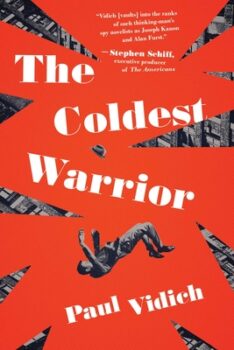 I had finished The Coldest Warrior, and as you do at the end of any book, you ask yourself: What am I going to write next? In my case, I tend to decide where I’m going to set the novel before I actually figure out what the novel is about. The setting creates the atmospherics for the imaginary world and it’s usually the case that a particular place has in it all the things that draw people to it. I decided I wanted to set a novel in Moscow in 1985 in the final years of the Soviet Union.
I had finished The Coldest Warrior, and as you do at the end of any book, you ask yourself: What am I going to write next? In my case, I tend to decide where I’m going to set the novel before I actually figure out what the novel is about. The setting creates the atmospherics for the imaginary world and it’s usually the case that a particular place has in it all the things that draw people to it. I decided I wanted to set a novel in Moscow in 1985 in the final years of the Soviet Union.
As part of my research, I read the autobiographies of several high-level KGB officers who passed information to the CIA. They risked their lives with their activity, and importantly, they put their lives in the hands of strangers, their CIA handlers. I was curious about the nature of the trust that developed between a KGB defector and his CIA handler. All my books explore aspects of moral responsibility in the world of espionage. An Honorable Man explores the nature of honor. The Coldest Warrior explores the nature of truth. In The Mercenary, I decided to explore the nature of trust.
I discovered early on that spies are ideal subjects for fiction. A spy story doesn’t have to be just a spy story; it can be a love story, a story about engagement and escape, and about the search for integrity. In my universe, spies lie in the service of truth, suborn friends in the name of national security, and conduct extrajudicial assassinations in the name of justice. I am fascinated by these contradictions and readers, I believe, are entertained by the inherent hypocrisy.
Can I ask you about your evolution into genre fiction?
I didn’t plan it. I never expected to write spy novels. When we were together in the Rutgers MFA program, I wrote literary short stories and I continued that after graduation. I would have been happy with a literary career that consisted of a few story collections. But then I was contacted by an agent who’d read one story that won a prize, who said he didn’t represent short story writers, and wondered if I had a novel. I looked at my wife and said the only story I knew worthy of a novel was the case of my uncle, Frank Olson, who worked on top secret bioweapons and was murdered in 1953. So, to answer the question, Olson’s story took me there. It also made sense. I had always admired novels by John le Carre and Graham Greene. The guardrails of genre fiction provided a structure in which I could create memorable characters and explore larger themes. What makes a book literary is not the story, or the themes, but the quality of the writing. John le CarréLe wrote spy novels, but he also wrote about a particular class of privileged Englishmen. His brilliance is that he used the constraints of genre for his expansive storytelling.
The first fiction that I read of yours was mostly short stories, literary fiction centered in what I assume was a very familiar world. They took place mostly in a present-day New York City. And, while I enjoyed your fiction then, I feel like I didn’t start to really see you, Paul the person, in your fiction until you went to the spy novel. It was almost like you wrote as an outsider when writing about your familiar world. And then, when you entered this imagined world in your novels, which take place in other countries and in the past, that distance closed. I’m curious to hear your take, on how you see the through-line in your writing.
I wrote two novels when I came to New York after college, but they were not good novels. There was nothing authentic, nothing true in them. There was none of me in them. I did the thing that young writers do, plot things out hoping to cobble together a story. Then life intervened. We had a child on the way and I entered business school and had a career in media, setting aside writing. When my mother died, I wrote a story about a young boy whose mother was dying. I was really in the head of that kid, and it was the first time in my life that I felt like I was inside a character and could see the world through the character’s eyes. I got an MFA, went on to write more stories, published some, one, as I said, earned a prize, but a part of me wasn’t inside the stories. I’m not sure what that reluctance came from, but I think you’re insightful to point that out. I found my voice when I created the character of George Mueller, the reluctant spy inside the CIA, who wanted to get out.
I feel like we have opposite evolutions. My first fiction was far too close, and it’s taken a lot to pull away. I felt like I had to honor every voice spouting off inside my head. Turns out I don’t need any of the voices in my head interrupting the story I’m trying to write.
I would say your writing now is really working. In your earlier work, there was not a lot of distance between Dawn the writer and your characters.
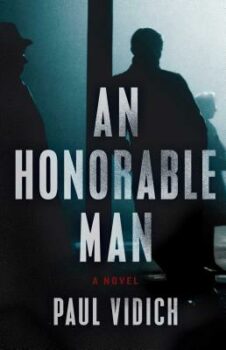 I was fortunate to find a voice I could trust. Those early short stories had quirky characters, and I never felt that I breathed life into them. And finding my voice was hard work. I wrote three versions of the Olson story as nonfiction and fiction, but each failed because I was too close to the story. But in the process of those attempts, I began to understand my uncle’s character. He was a man who couldn’t discuss his top-secret work with his wife and couldn’t share doubts about his work with colleagues. I was drawn to him—the inside man with moral qualms, wanting to get out of covert work.
I was fortunate to find a voice I could trust. Those early short stories had quirky characters, and I never felt that I breathed life into them. And finding my voice was hard work. I wrote three versions of the Olson story as nonfiction and fiction, but each failed because I was too close to the story. But in the process of those attempts, I began to understand my uncle’s character. He was a man who couldn’t discuss his top-secret work with his wife and couldn’t share doubts about his work with colleagues. I was drawn to him—the inside man with moral qualms, wanting to get out of covert work.
The character I created from my uncle’s life became George Mueller, the CIA officer in my first novel who lives a double life. When I created Mueller, I realized that I was fully inside his world. And it wasn’t my world. It wasn’t my life, although part of my life did inform the Mueller character. I worked for years in corporate America leading a sort of double life of my own. No one knew I wanted to write, so I kept this secret from them. When I left my corporate career and published the novel, many of my former colleagues were shocked. They said, “When did you start writing? I didn’t know you were interested in writing.” George Mueller wasn’t me, but he was a character in whom I could deposit some of my own psyche.
One of the aspects of your fiction that has always drawn me in, in your short stories and spy novels, has been the access they give me to a world I otherwise would never know. And that is the world of powerful men. Men with real power, and real access to power, who comprise a very small segment of the population. I feel like your novels put that psychology and that type of masculinity on display. And it’s done with authenticity and without judgment.
I haven’t thought of the characters in that way, but I think it makes sense. We are all unconscious creations of the world we grow up in, and I grew up in the 50s and 60s when white men dominated. These were men who went off to war or fought the Cold War.
And they were broken by war.
Exactly. Broken by the moral hazards of the work they chose. Garin, the male protagonist in The Mercenary, is enigmatic and unsettled in his life. Natalya, the co-protagonist, is a more interesting and well-developed character in many ways. Natalya is settled, knows what she wants, but she is also stuck inside a life that is not of her own choosing. She and Garin are lonely people, and each takes something from the other when circumstances bring them together romantically.
And she’s not delicate. She takes risks.
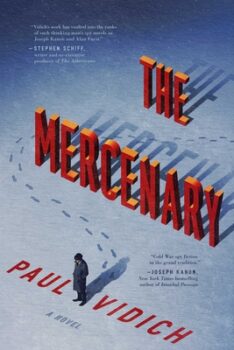 Yes.And she’s indignant about the world—the male world in the 1980s, specifically. I explore a dynamic between white men and white women living at that time. It’s odd to think about the historical context today because the world now is filled with many diverse voices from fantastic authors. Sometimes, I feel I may be a little out of step with the times. In writing The Mercenary, I realized that I wanted to write a novel that centers on a female protagonist. That is what I’ve done in my next novel, The Matchmaker, set in Berlin in 1989. My hero, if I can use that term, is a tough, gentle, smart, witty, clever, dynamic, and morally complex woman. She isn’t a spy, but she out plays the CIA and the Stasi at their own game.
Yes.And she’s indignant about the world—the male world in the 1980s, specifically. I explore a dynamic between white men and white women living at that time. It’s odd to think about the historical context today because the world now is filled with many diverse voices from fantastic authors. Sometimes, I feel I may be a little out of step with the times. In writing The Mercenary, I realized that I wanted to write a novel that centers on a female protagonist. That is what I’ve done in my next novel, The Matchmaker, set in Berlin in 1989. My hero, if I can use that term, is a tough, gentle, smart, witty, clever, dynamic, and morally complex woman. She isn’t a spy, but she out plays the CIA and the Stasi at their own game.
Maybe it’s strange for me to identify this top-of-the pyramid, powerful white male as a minority demographic. Obviously not an oppressed demographic. Or maybe oppressed by their own design. But I think that there is this illusion that all white men have access to the world that you write about it, but really most men, most people, are walking around fairly powerless. And maybe it’s that belief that keeps that status quo.
The world has changed. Male dominance in intelligence circles has waned, although maybe the illusion hasn’t vanished. Until a month ago, Gina Haspel was the head of the CIA and three of her top five directorates were headed by women. Spy novels set in the modern era will look quite different from the novels set in the Cold War, and many will be written by women. Already, you see wonderful novels by Lauren Wilkinson, Stella Remington, and Rosalie Knecht, which feature women protagonists.
Let’s talk about one of my favorite female characters in literature, because I know we share a love for this book: Jane Eyre. I imagine we came to this novel for different reasons, and connected with the character for different reasons. I read it as a teenager, in high school, for summer reading, and I just totally connected to Jane’s situation. Tell me why you love Jane Eyre.
I read Jane Eyre for the first time only a few years ago. The first books I read as a child were boy adventure books.
My firsts were comic books and mad magazine. I had an addiction. Just stacks of comics under my bed.
Jane Eyre was introduced to me by my wife, Linda, who teaches an English literature survey course. I was drawn into the book in the first five pages when we see Jane being bullied by her cousin John Reed, a nasty kid, and Jane is immediately cast into the role of the smart, defiant victim. And it’s so sharply written, so empathetically written, I was immediately touched by this young woman. As the novel moves forward, I never lost interest in her. She is confronted by challenges along the way and overcomes them, and she does so with grace and dignity. The novel’s first-person voice drew me in.
I don’t remember that the book began that way, but it makes perfect sense that I would have been hooked, and for those same reasons you described. For me, what I remember resonating with was the class stuff. I grew up sort of poor and feral, but like two miles away from Harvard, so I always felt like I lived inside this world of elitism, but I didn’t belong to it. That’s how I remember Jane.
Do you think you’ve explored that aspect of Jane Eyre in your writing?
I wish I could say I have. I think I write characters who have that sort of outsider status, but I know I have a lot of growing to do still. That’s one of the benefits of writing over other types of creative endeavors thought, isn’t? There’s no expiration date. You might not achieve success until your 40s, or 50s or 70s, and that’s fine. Whereas, you know, music and acting, if it doesn’t happen for you when you’re young, that’s kind of it.
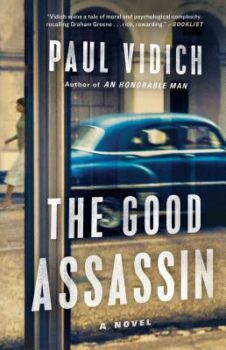 [Laughing] Right. The writer has no expiration date. I left my corporate career at fifty-six and turned to writing full time. I had no illusion it would be easy. To keep up my confidence, I made a list of writers who’d successfully published their first novel after the age of fifty. I would keep going back to the list, adding more names, making it longer. I thought, well, if they can do it, so can I. There are wonderful writers whose first book come in their twenties and there are wonderful writers whose first novels came in their 40s, 50s, and 60s. The time to write is when you’re excited about an idea that grips you, won’t let you go, and carries you forward.
[Laughing] Right. The writer has no expiration date. I left my corporate career at fifty-six and turned to writing full time. I had no illusion it would be easy. To keep up my confidence, I made a list of writers who’d successfully published their first novel after the age of fifty. I would keep going back to the list, adding more names, making it longer. I thought, well, if they can do it, so can I. There are wonderful writers whose first book come in their twenties and there are wonderful writers whose first novels came in their 40s, 50s, and 60s. The time to write is when you’re excited about an idea that grips you, won’t let you go, and carries you forward.
That’s been one of the nice things about The Pen Parentis fellowship this year. I’ve gotten to listen to a lot of conversations between writers, talking about their lives. And it’s a good reminder that writers have to keep living, even after they’ve published great novels. In hearing writers talk about their lives, you can take writers off their pedestal and see they’re actual people. They wrote their book, which you love and admire, but they still have to live their messy lives like the rest of us. I feel like it’s liberating to have that perspective.
My best training for writing was to go to a big corporate job every day for many years. I look at writing as work. I sit down every day for three or four hours. I keep going until there’s a first draft, a second draft, and then a third and fourth. I feel good about some of the writing and not so good other days. But the goal is to get a manuscript sufficiently polished that I’m comfortable showing it to readers. It’s work.
Yeah, one of the things I know teaching young people is that there is a surplus of talent. I have middle school kids who write stuff that makes me weep it’s so good. Can’t always get them to proofread though.
The music industry showed me that the most successful artists aren’t always the most talented. Success, in the case of a singer like Madonna, came from being an ambitious, incredibly hardworking artist who overcame the limits of her voice with her persona, her dancing, and her work ethic.
And thinking about Madonna, and that height of fame—not that every writer will have this problem—but there’s a sacrifice you make when you agree to be exposed at that level. It terrifies me. I love anonymity. And maybe this is crazy, but I feel like the more exposure you have, and the more you solidify yourself under the public lens, the less freedom you have.
Marketing my books forced me to be publicly in the world and I have had to figure out who I want to be. For a long time, I lived a bifurcated life. I was a successful business executive for Time Warner and I had a secret desire to write. I remember the first time I said, “I’m a writer.” My father had died, and my brothers and I were meeting The New School dean, where my father had taught, to endow a scholarship in his name. We each said what we did. For years I said, I work in business. But when it was my turn in that meeting, I said, “I’m a writer.” It was the first time I owned the idea. With the publication of my novels, I have had to learn how to be a public writer, posting on social media. Some writers use it to great effect to express their opinions and beliefs, but that’s not me. I’m not comfortable using Facebook and Twitter that way, even though I do have strong opinions and beliefs. But part of success is to become visible when your novel is published. That’s part of being a writer these days.
Which is why I asked someone who’s already experienced such success. And I like your answer. It sounds like a healthy level of compartmentalization.
You have to disassociate yourself from your private self and find the public persona that you’re willing to share with the world.
Very spy-like. One of your interests that I’ve gleaned having known you and having read your work is this theme of family secrets. The secrets that families keep with each other, from each other, lies by omission. Has this always been an interest, or was it born from the research you’ve done on your own family and their relationship to the CIA?
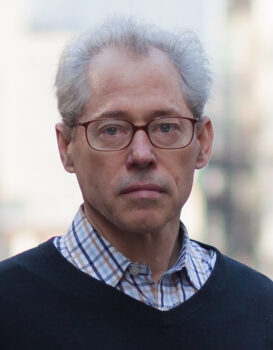 I was the second of four children and I never got the attention that I thought I deserved. I took long walks in the woods, and I was very comfortable not telling my family where I was or what I was doing because, well, I don’t think they would have listened anyway. I was comfortable being a little bit secretive in my alone-ness. I carry those early experiences unconsciously and they show up, I’m sure, when I’m writing about the world of spies. And one of the best things that ever happened to me was marrying Linda. Marriage pulls you out of yourself, and having children pulls you out of yourself. All the tendencies that I developed as a child in order to survive, I had to confront and overcome in my marriage.
I was the second of four children and I never got the attention that I thought I deserved. I took long walks in the woods, and I was very comfortable not telling my family where I was or what I was doing because, well, I don’t think they would have listened anyway. I was comfortable being a little bit secretive in my alone-ness. I carry those early experiences unconsciously and they show up, I’m sure, when I’m writing about the world of spies. And one of the best things that ever happened to me was marrying Linda. Marriage pulls you out of yourself, and having children pulls you out of yourself. All the tendencies that I developed as a child in order to survive, I had to confront and overcome in my marriage.
Having also been runt who did not get the attention she deserved, I very much relate. And I wonder if maybe that’s a pretty common experience to a lot of writers. And I also agree about marriage; it absolutely makes you confront some of those survival instincts we develop when we’re young that maybe don’t serve us so well when we’re older. Starting a family upended my life, all in great ways. And I think having those responsibilities and being held to account by my wife and child, I think they’ve grounded me in my life, but also in my writing. Just finding a little bit of peace and security in the world had quieted my mind in ways that have improved my writing.
Chekhov once said: If you want to work on your art, work on your life.
Your novels center on these major moments in history, and we’re now living in what feels very much like a major moment in American history. When I first started writing fiction as an undergrad, 9-11 happened, and I remember wandering around campus just feeling stupid for wanting to be a writer. I thought only people with important voices should be speaking. Now I don’t feel that way. Is that something you think about: whether or not writing fiction is something we should be doing during these difficult sort consequential times?
Somebody has to bear witness. If you have that gift and the talent, and you have the energy to do it, you shouldn’t begrudge yourself the choice.

